We're experiencing increased traffic and our image generator is backed up. Don't worry, your images will eventually generate!
One night, I woke up with a start. My room was dark and quiet.
The human body can wake up suddenly from dreams due to fear or unexpected stimuli.

I had a bad dream about a big, scary monster. It made me feel afraid.
Bad dreams, also known as nightmares, are common in young children and can be very vivid.

I decided to go to Dad's room. I tiptoed quietly down the hall.
Tiptoeing helps make less noise because only a small part of the foot touches the floor.
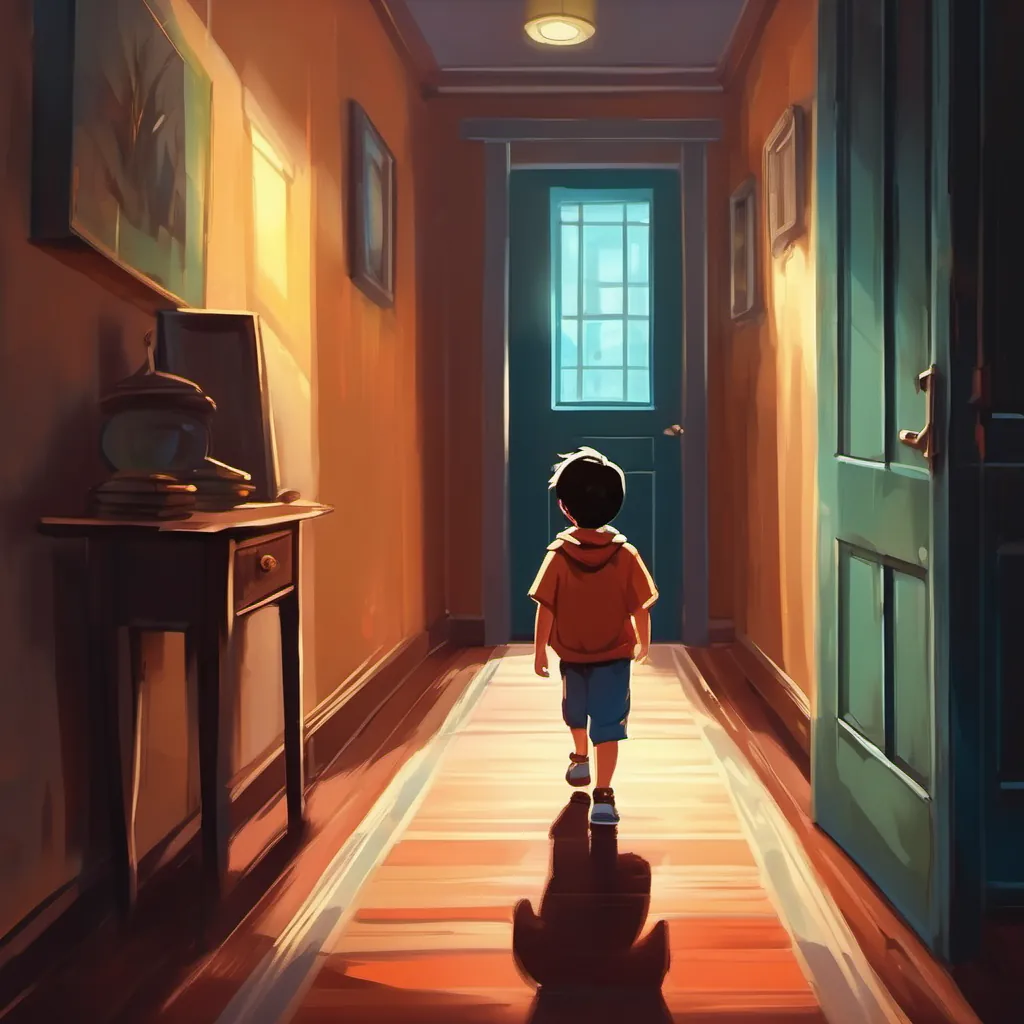
When I reached Dad's door, I knocked softly. 'Dad?' I whispered.
Softly knocking and whispering reduces the chance of waking others while seeking help.
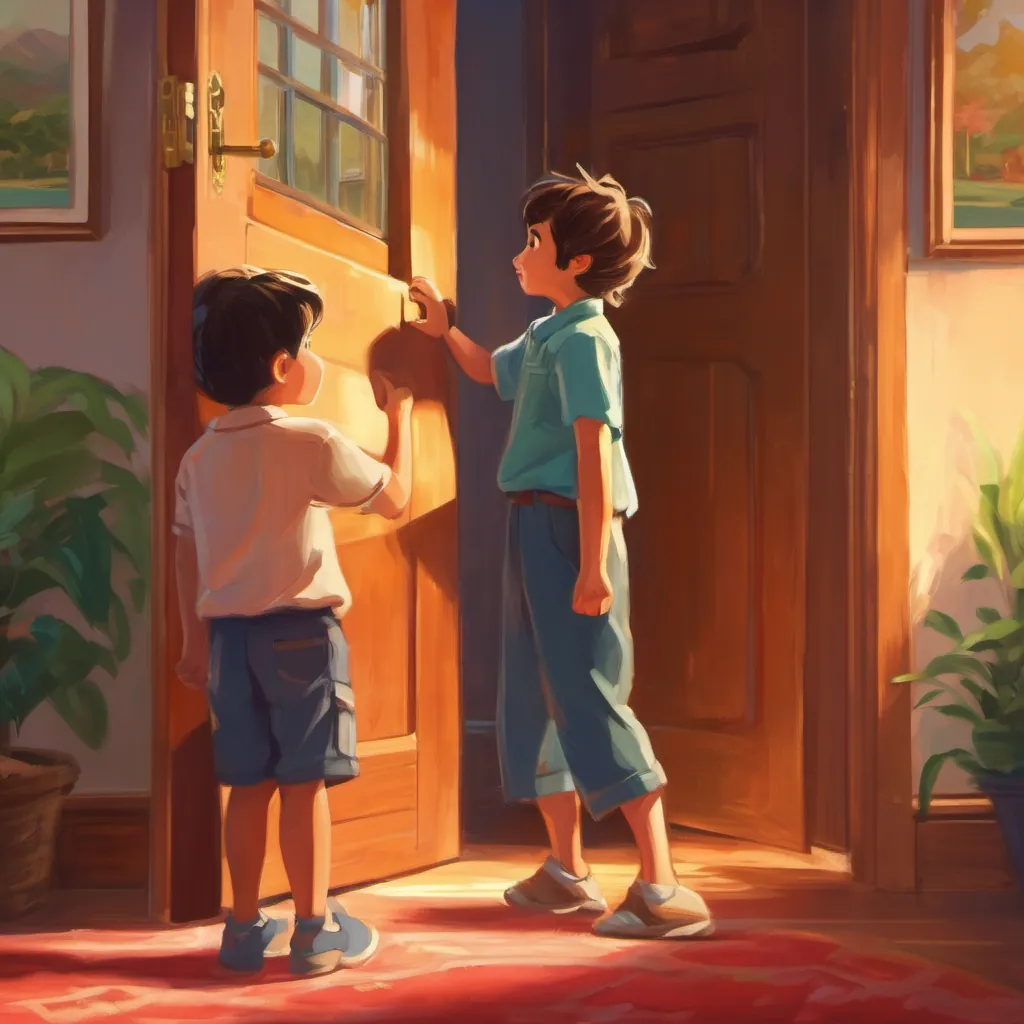
Dad opened the door, looking sleepy. 'What is it, buddy?' he asked.
Sleep inertia makes people feel groggy and disoriented right after waking up.

'I had a bad dream,' I said. My voice was shaky.
Children often seek comfort from caregivers after frightening experiences, including bad dreams.
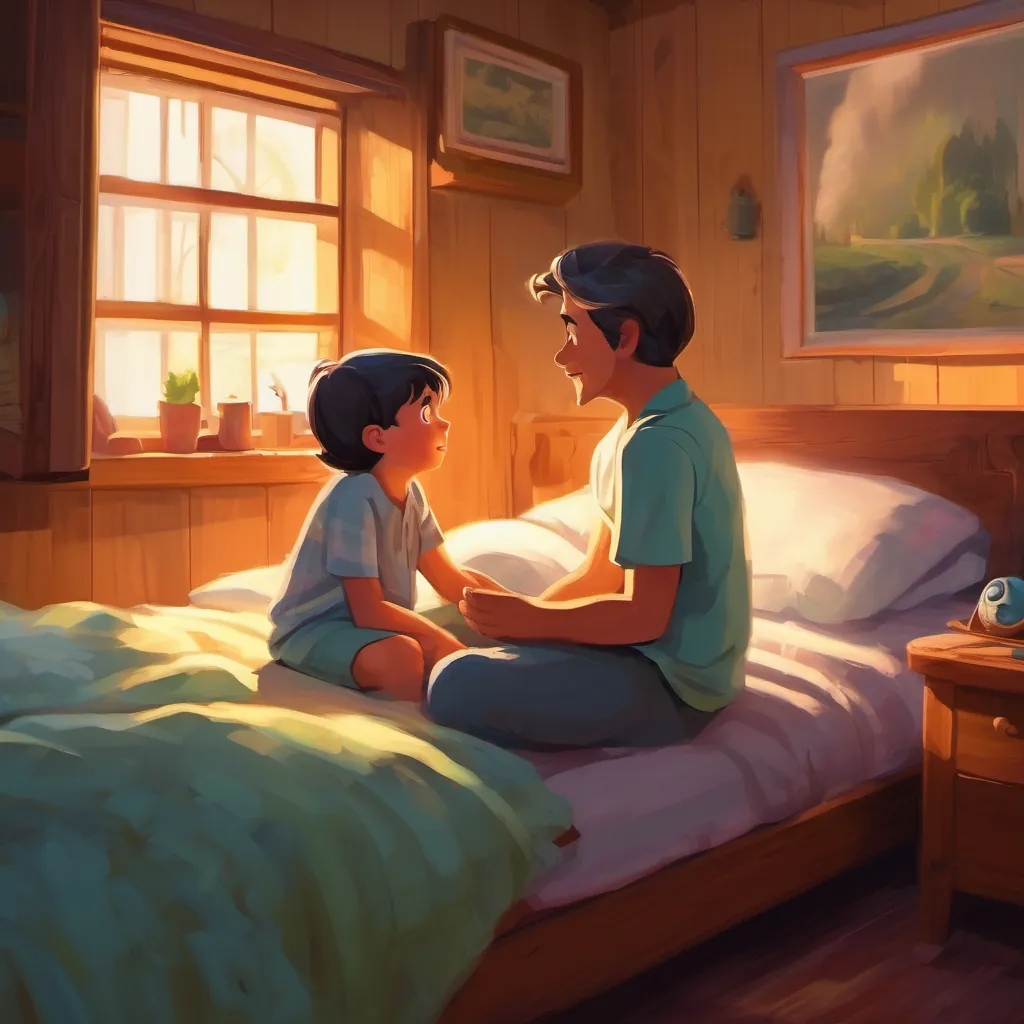
Dad knelt down and gave me a big hug. 'It's okay,' he said kindly.
Hugging releases oxytocin, a hormone that reduces stress and promotes feelings of safety.
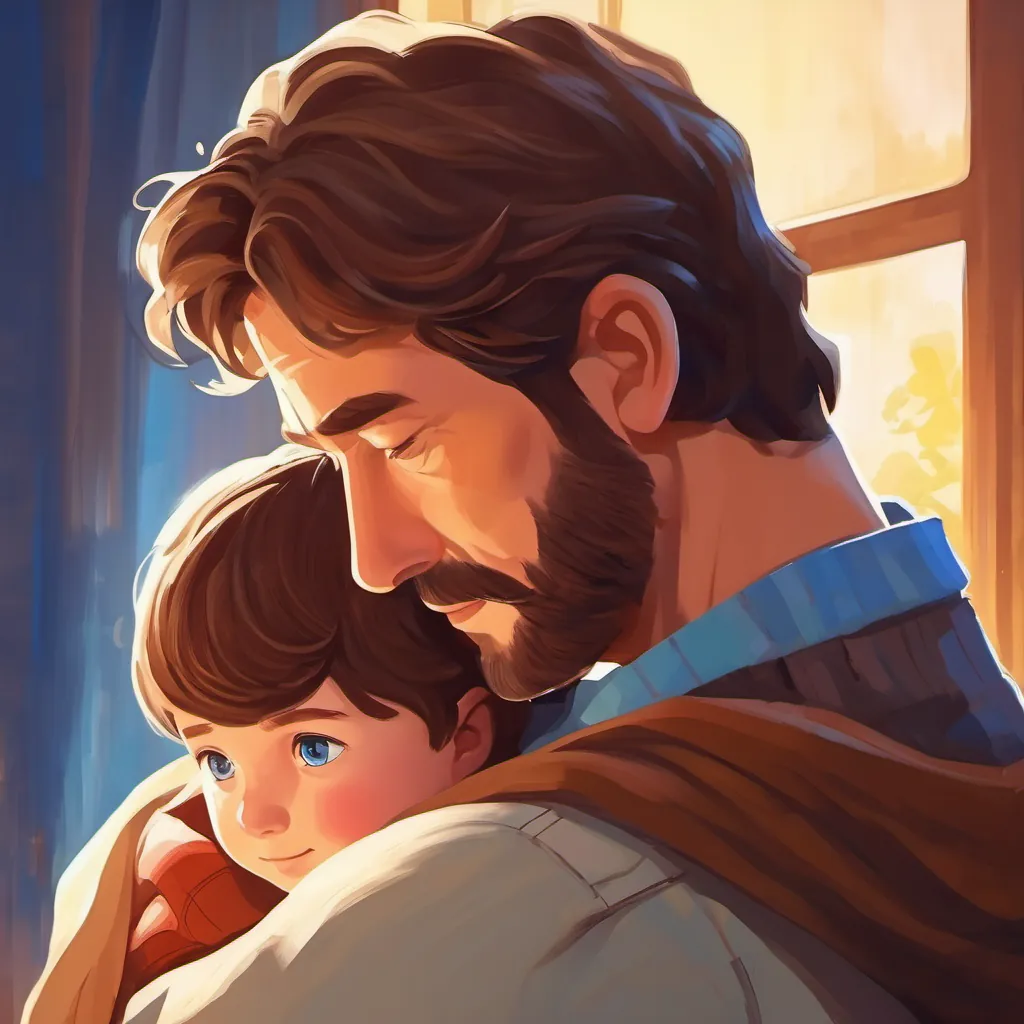
He took my hand and led me back to my room. We turned on a small night light.
Night lights provide a small amount of light to help reduce fear of the dark.
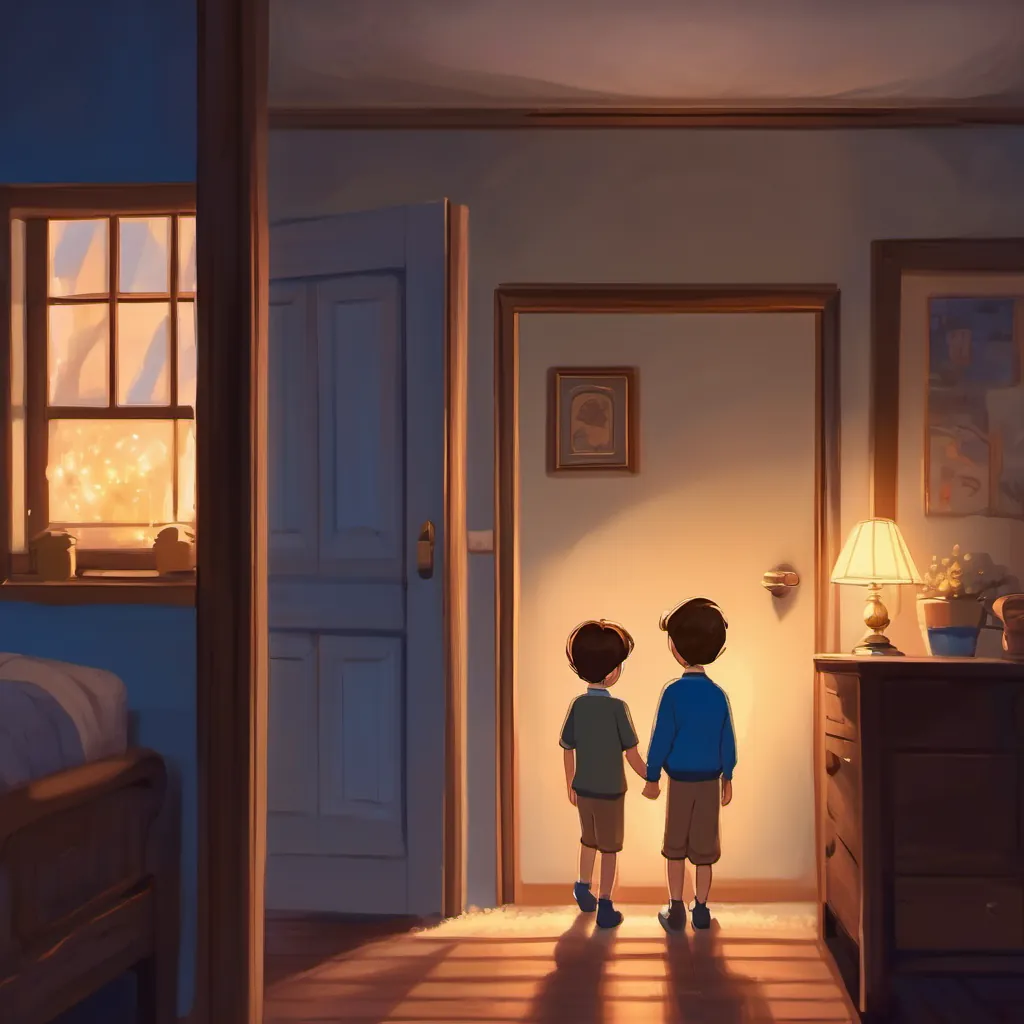
Dad sat on my bed and said, 'Let's talk about something happy.'
Distracting the mind with pleasant thoughts can help reduce the impact of frightening experiences.
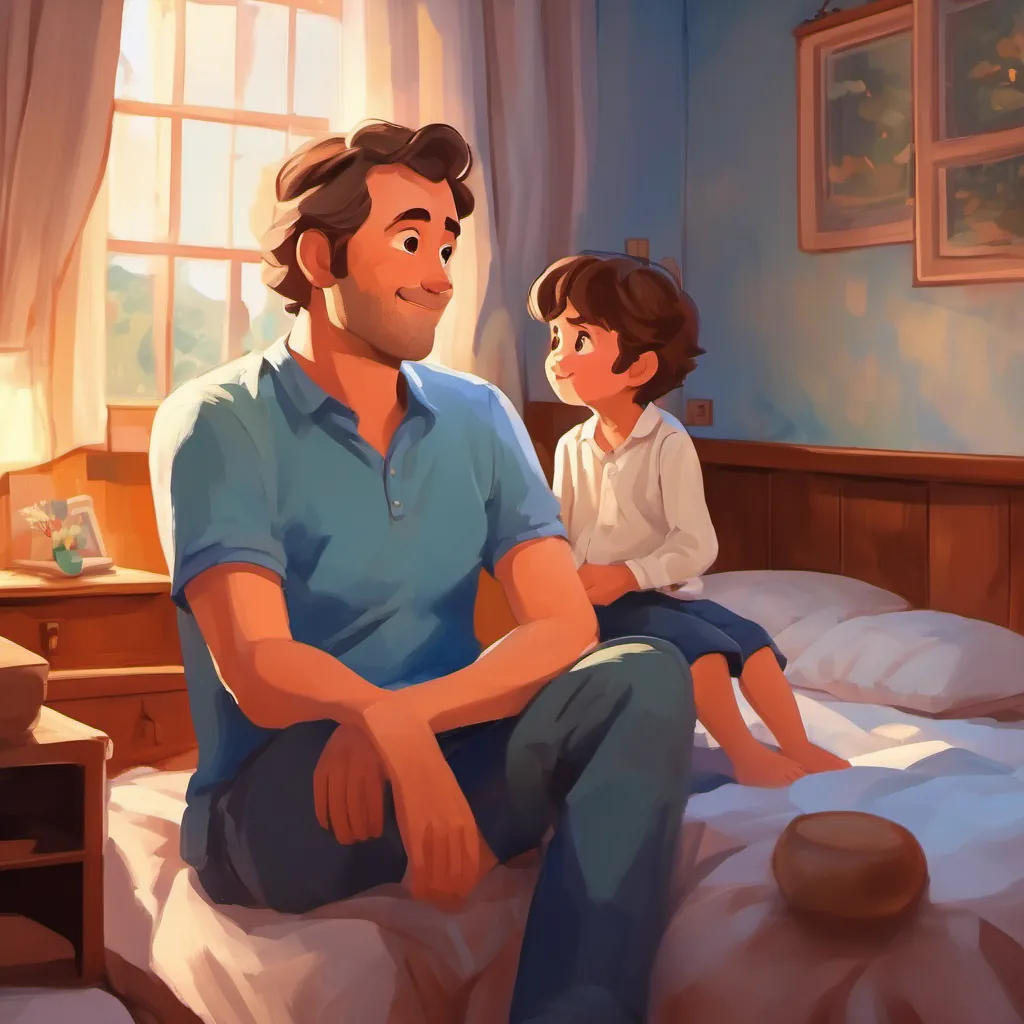
We talked about our fun trip to the zoo. I felt better thinking about the animals.
Positive memories, such as family outings, can provide comfort and reduce anxiety.

Dad tucked me in and kissed my forehead. 'Sweet dreams,' he said.
Rituals like tucking in and goodnight kisses can create a sense of security for children.
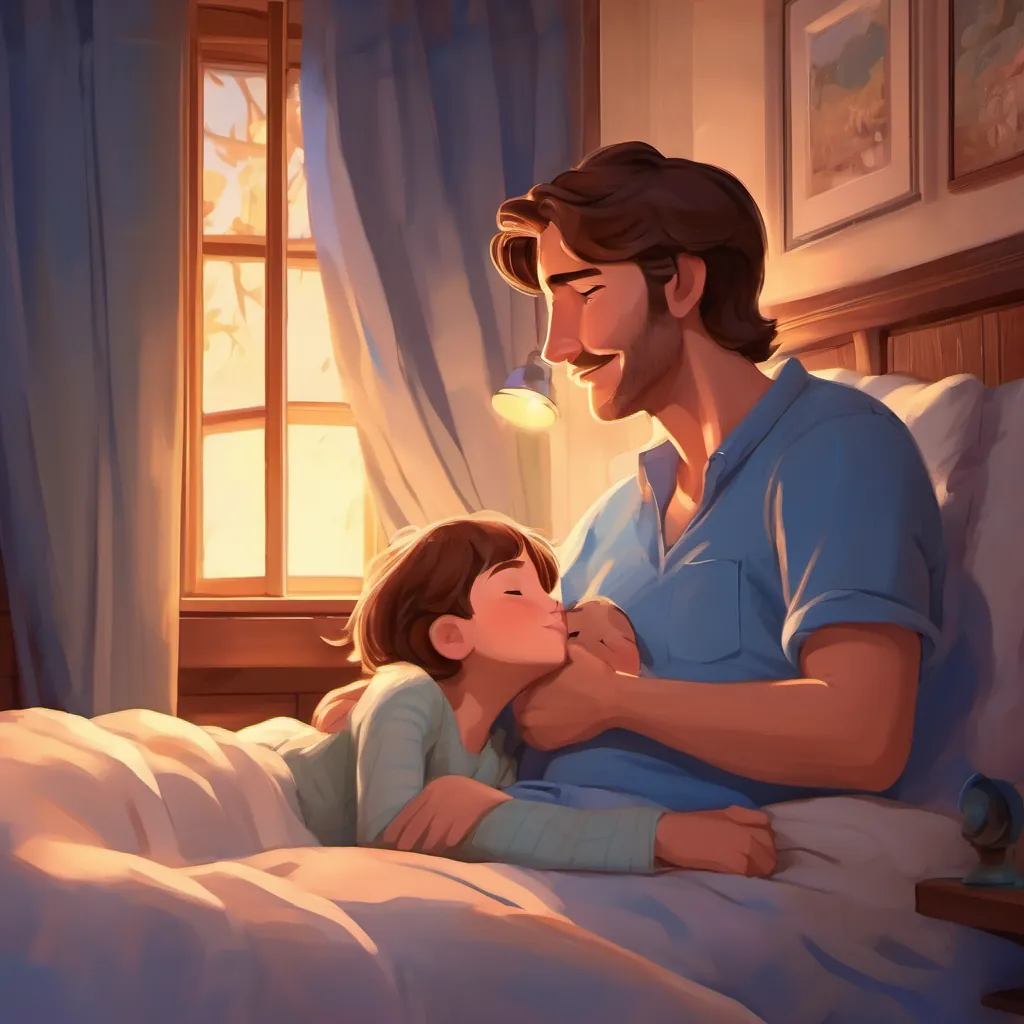
I snuggled under my blanket and closed my eyes. I felt safe and ready to sleep again.
Feeling safe and comforted can help a child easily fall back to sleep after waking up from a nightmare.
